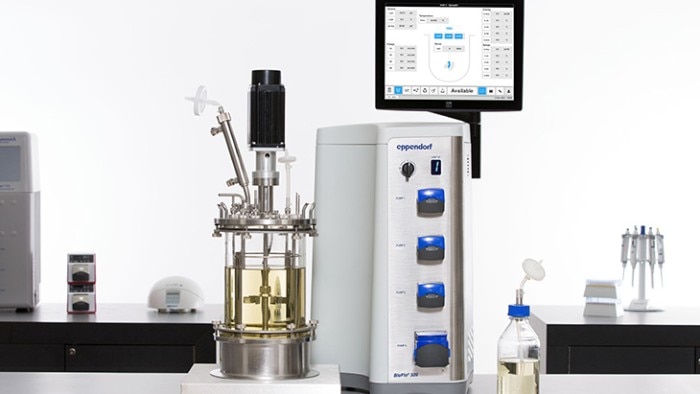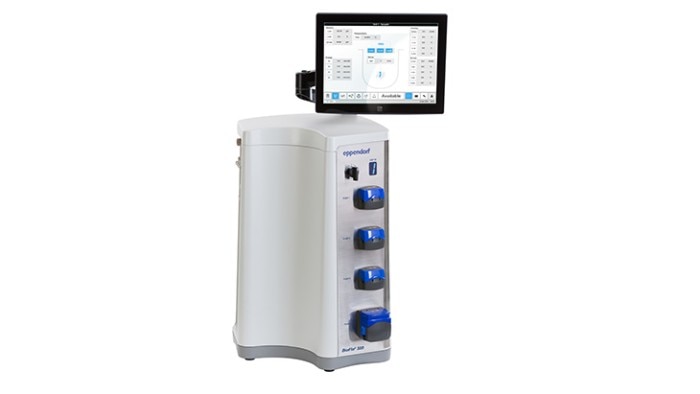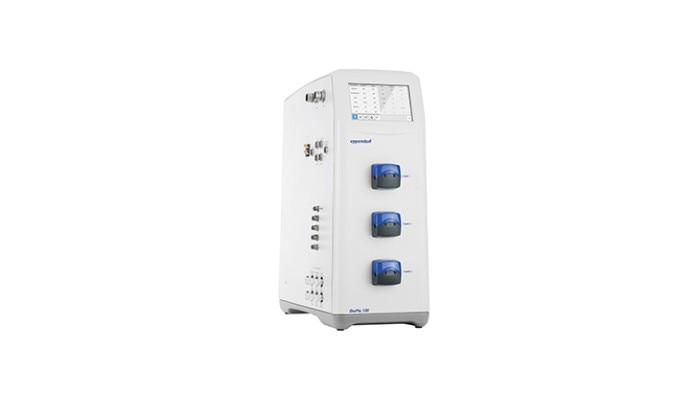MENU
CH | CHF
-
-
-
- Services pour bioprocédés
- Services pour centrifugeuse et rotors
- Services pour Mastercycler
- Services pour automates de pipetage
- Services pour congélateurs
- Services pour incubateurs
- Services pour agitateurs
- Services pour appareils de photométrie
- Service de contrôle de la température et de l’agitation
- Service pour pipette
-
-
-
-
- Services pour bioprocédés
- Services pour centrifugeuse et rotors
- Services pour Mastercycler
- Services pour automates de pipetage
- Services pour congélateurs
- Services pour incubateurs
- Services pour agitateurs
- Services pour appareils de photométrie
- Service de contrôle de la température et de l’agitation
- Service pour pipette
-
CH | CHF
-
- Centrifugeuses de paillasse
- Centrifugeuses au sol
- Centrifugeuses réfrigérées
- Microcentrifugeuses
- Centrifugeuses multi-fonctions
- Centrifugeuses haute vitesse
- Ultracentrifugeuses
- Concentrateur
- Produits IVD
- High-Speed and Ultracentrifuge Consumables
- Tubes de centrifugeuse
- Plaques de centrifugeuse
- Gestion des appareils
- Gestion des échantillons et des informations
-
- Pipetage manuel & distribution
- Pipettes mécaniques
- Pipettes électroniques
- Pipettes multicanaux
- Distributeurs et pipettes à déplacement positif
- Automates de pipetage
- Distributeurs sur flacon
- Auxiliaires de pipetage
- Pointes de pipette
- Consommables d’automatisation
- Accessoires pour pipettes et distributeurs
- Accessoires d’automatisation
- Services pour pipettes et distributeurs
Sorry, we couldn't find anything on our website containing your search term.

Enabling Bioproduct Success with Fermentation Scale-Up
Lab Academy
- Bioprocédés
- Culture de microorganismes
- Bioprocédés
- Interview
Earnest Agriculture uses prairie-derived microbes to create probiotic seed coatings to improve crop growth and resilience. In this interview, their CEO Eddy Mejia talks about the challenges of scaling up fermentation and how the right support can make all the difference.
Q: What is the mission of your company?
A: Our mission at Earnest Agriculture is to empower farmers with sustainable, science-driven solutions that enhance soil health, increase productivity, and build resilience against the challenges of global climate change. We use prairie-derived microbes to create probiotic seed coatings that not only improve farm productivity but also help reduce the dependency on harmful chemicals.
A: Our mission at Earnest Agriculture is to empower farmers with sustainable, science-driven solutions that enhance soil health, increase productivity, and build resilience against the challenges of global climate change. We use prairie-derived microbes to create probiotic seed coatings that not only improve farm productivity but also help reduce the dependency on harmful chemicals.
Lire moins

Q: What are the challenges you face in product development, scale-up, and production?
A: Scaling up production of our bioproducts comes with several challenges. One major hurdle is ensuring the consistency and quality of our products as we transition from small-scale lab trials to larger production volumes. Formulation for downstream processing is essential to improve product viability, ensuring our microbes remain stable and effective for field environments. Additionally, we are working with limited funding and trying to do a lot with a little, which means we need to be resourceful and prioritize efficiently while meeting regulatory requirements across different states.
Q: Tell us a bit about your bioprocess: Which product do you produce with which organism?
A: Our bioprocess involves fermenting prairie-derived microbes that work together to improve nutrient use efficiency, plant resilience, and disease protection. The fermentation process is critical to producing a product that actually works in field environments. We use a combination of common bacteria strains and some newly discovered strains that work together to enhance soil health and improve crop productivity. The ability to scale the fermentation process to produce large volumes of these microbes is crucial to ensuring the success of our bioproducts and meet investor and customer demands.
Q: Why did you choose Eppendorf?
A: We chose Eppendorf because we see them as a market leader in bioprocessing equipment. Their systems are reliable and precise, and the support they provide, especially for newcomers to fermentation, is critical. It’s something you can’t find from other suppliers. We’ve had firsthand experience with their exceptional support, which has been invaluable as we scale our operations and fine-tune our bioprocessing.
Q: Which bioreactor system did you choose? What were the main reasons for choosing this particular system?
A: We started with the BioFlo® 120 because of its versatility and ease of use. It was a great entry point for us, but we quickly realized we needed more capacity. John Eddington at Eppendorf played a crucial role in helping us scale up. His support was critical in removing a major fermentation roadblock. Without him, we would have been in a bad spot, especially as we transitioned from using flasks to more complex fermentation systems. Now, with two BioFlo 320 systems running alongside the BioFlo 120, we have the capacity and control we need. The hardware and software in the BioFlo systems make the process almost seamless—like plug and play—which has been essential for us.
A: Scaling up production of our bioproducts comes with several challenges. One major hurdle is ensuring the consistency and quality of our products as we transition from small-scale lab trials to larger production volumes. Formulation for downstream processing is essential to improve product viability, ensuring our microbes remain stable and effective for field environments. Additionally, we are working with limited funding and trying to do a lot with a little, which means we need to be resourceful and prioritize efficiently while meeting regulatory requirements across different states.
Q: Tell us a bit about your bioprocess: Which product do you produce with which organism?
A: Our bioprocess involves fermenting prairie-derived microbes that work together to improve nutrient use efficiency, plant resilience, and disease protection. The fermentation process is critical to producing a product that actually works in field environments. We use a combination of common bacteria strains and some newly discovered strains that work together to enhance soil health and improve crop productivity. The ability to scale the fermentation process to produce large volumes of these microbes is crucial to ensuring the success of our bioproducts and meet investor and customer demands.
Q: Why did you choose Eppendorf?
A: We chose Eppendorf because we see them as a market leader in bioprocessing equipment. Their systems are reliable and precise, and the support they provide, especially for newcomers to fermentation, is critical. It’s something you can’t find from other suppliers. We’ve had firsthand experience with their exceptional support, which has been invaluable as we scale our operations and fine-tune our bioprocessing.
Q: Which bioreactor system did you choose? What were the main reasons for choosing this particular system?
A: We started with the BioFlo® 120 because of its versatility and ease of use. It was a great entry point for us, but we quickly realized we needed more capacity. John Eddington at Eppendorf played a crucial role in helping us scale up. His support was critical in removing a major fermentation roadblock. Without him, we would have been in a bad spot, especially as we transitioned from using flasks to more complex fermentation systems. Now, with two BioFlo 320 systems running alongside the BioFlo 120, we have the capacity and control we need. The hardware and software in the BioFlo systems make the process almost seamless—like plug and play—which has been essential for us.
Lire moins

BioFlo 320 bioreactor system
Q: Is there any advice you would share with others about running a startup in the agriculture industry?
A: Running a startup in agriculture is both exciting and challenging. My best advice would be to test, test, test—constantly evaluate your product through lab trials, greenhouse experiments, and, most importantly, in real-world field environments. The gold standard is having at least three years of field testing. You need to ensure that your solution works under the conditions that farmers actually face, from varying climates to unpredictable soil health.
In addition, don’t underestimate the complexities of scaling. It’s easy to overlook the nuances of production when you’re starting small, but as you grow, those small details become critical. And remember, a strong network of advisors, suppliers (like Eppendorf), and farmers is invaluable. The feedback and insights from farmers, in particular, will help you tweak your product to meet real-world needs.
At the end of the day, agriculture is about delivering value that lasts, so focus on long-term relationships and always keep learning from the fields.
Eddy Mejia was interviewed by Eppendorf in 2025.
A: Running a startup in agriculture is both exciting and challenging. My best advice would be to test, test, test—constantly evaluate your product through lab trials, greenhouse experiments, and, most importantly, in real-world field environments. The gold standard is having at least three years of field testing. You need to ensure that your solution works under the conditions that farmers actually face, from varying climates to unpredictable soil health.
In addition, don’t underestimate the complexities of scaling. It’s easy to overlook the nuances of production when you’re starting small, but as you grow, those small details become critical. And remember, a strong network of advisors, suppliers (like Eppendorf), and farmers is invaluable. The feedback and insights from farmers, in particular, will help you tweak your product to meet real-world needs.
At the end of the day, agriculture is about delivering value that lasts, so focus on long-term relationships and always keep learning from the fields.
Eddy Mejia was interviewed by Eppendorf in 2025.
Lire moins
Related Links
Lire moins


